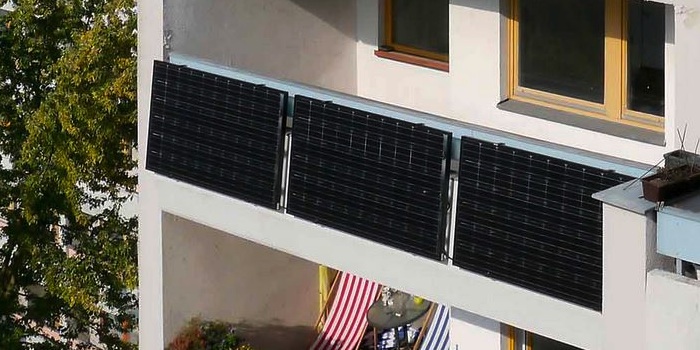Luxembourg’s Ministry of Economic Affairs is currently revising its Electricity Market Regulation, which dates back to 2007. According to the new provisions, the use of mini-PV systems could be allowed in the country in the future, according to a response by Minister, Étienne Schneider, to a parliamentary interrogation.
The government’s proposal also includes the use of pluggable solar devices that did not exist at the time of the establishment of the new Electricity Market Regulation. The Luxembourg Government Council already approved the reform on February 21. When the new law will come into force, however, remains unclear.
According to the current plans, PV modules for balconies will be exempt from the obligation to be registered with government authorities, and from paying the electricity tax.
The obligation to transmit data on a monthly basis may also be dropped for the mini-PV systems, Schneider said, although local regulators could decide to introduce an annual notification requirement. The installed mini PV systems would also have to comply with certain technical regulations to ensure safety standards – both for the user and the network operators.
In addition to the mini-PV systems, the draft also includes regulations for individual and collective self-consumption, as Schneider's answer shows. These new concepts are intended to turn electricity consumers into prosumers.
The bill also states that self-consumption will be exempt from the electricity tax. However, this is planned for generating units up to a certain size, which Schneider did not specify in the letter. In addition, the self-consumed electricity must come from renewable or combined heat and power generators.
Regarding the technical requirements and the safety of installations, Luxembourg's Minister of Economic Affairs refers to the requirements of EU Regulation 2016/631. This network code states that all power generation systems must have a telecontrol interface that allows the shutting-down of installations within five seconds.
However, systems up to 800 watts are excluded. This category includes pluggable solar devices. It also shows that the PV modules for balconies would not have to be approved by the network operators.
However, operators should always consult with an authorized electrician, said Schneider. This should ensure that the installation complies with the safety standards VDE-AR-N 4105. In addition, the photovoltaic balcony modules would have to be CE certified.
This content is protected by copyright and may not be reused. If you want to cooperate with us and would like to reuse some of our content, please contact: editors@pv-magazine.com.




1 comment
By submitting this form you agree to pv magazine using your data for the purposes of publishing your comment.
Your personal data will only be disclosed or otherwise transmitted to third parties for the purposes of spam filtering or if this is necessary for technical maintenance of the website. Any other transfer to third parties will not take place unless this is justified on the basis of applicable data protection regulations or if pv magazine is legally obliged to do so.
You may revoke this consent at any time with effect for the future, in which case your personal data will be deleted immediately. Otherwise, your data will be deleted if pv magazine has processed your request or the purpose of data storage is fulfilled.
Further information on data privacy can be found in our Data Protection Policy.